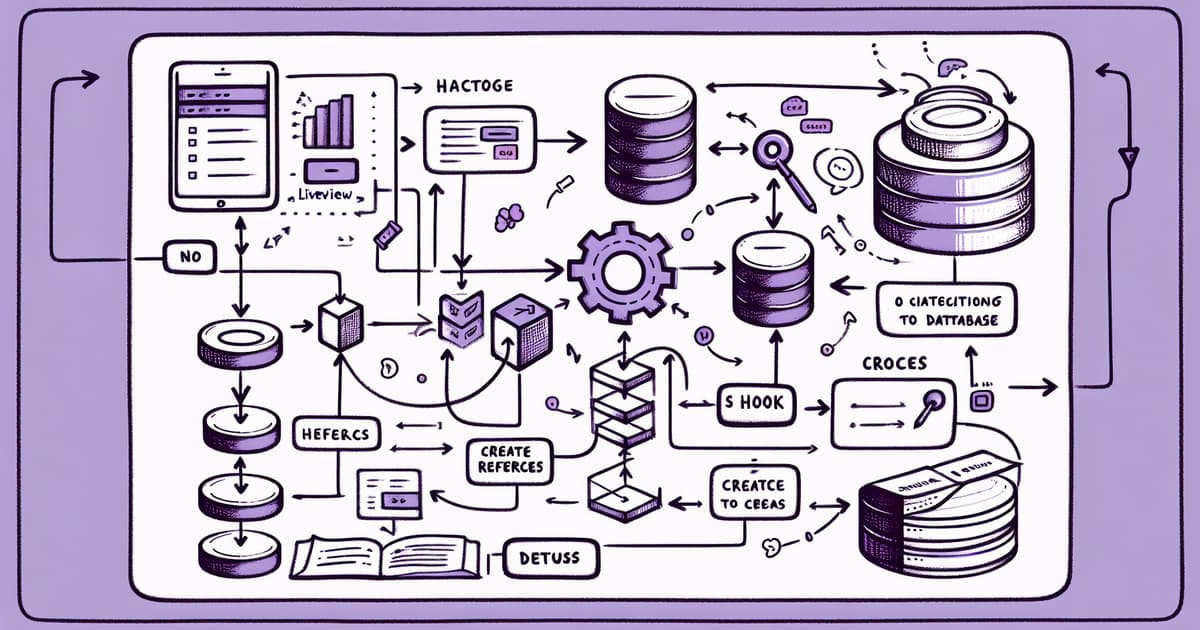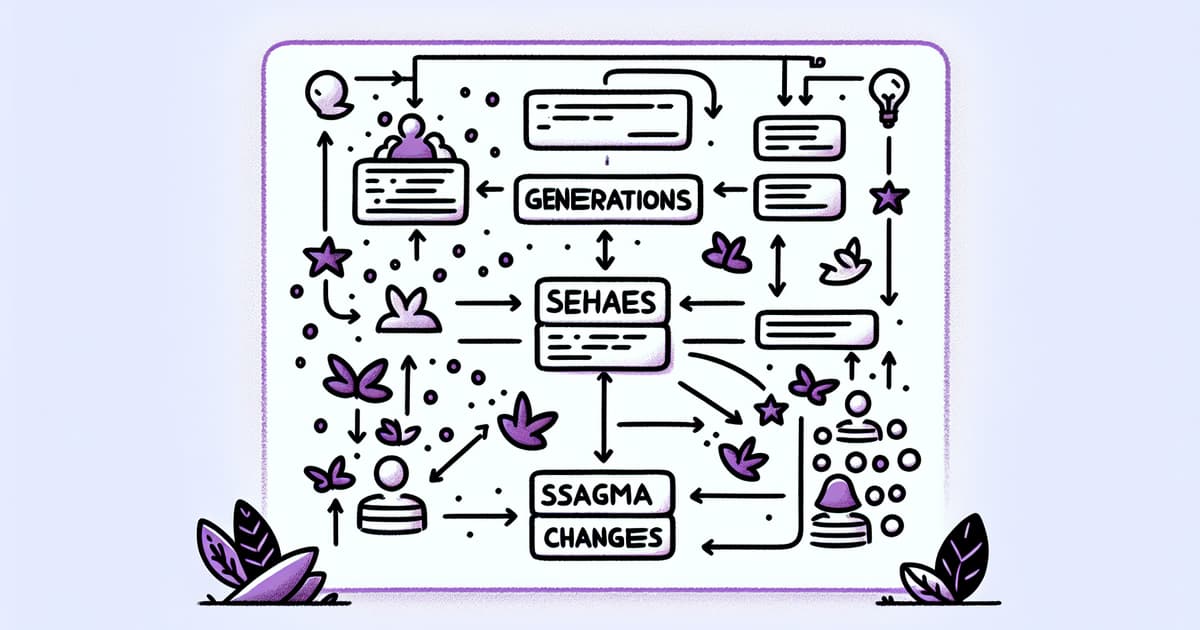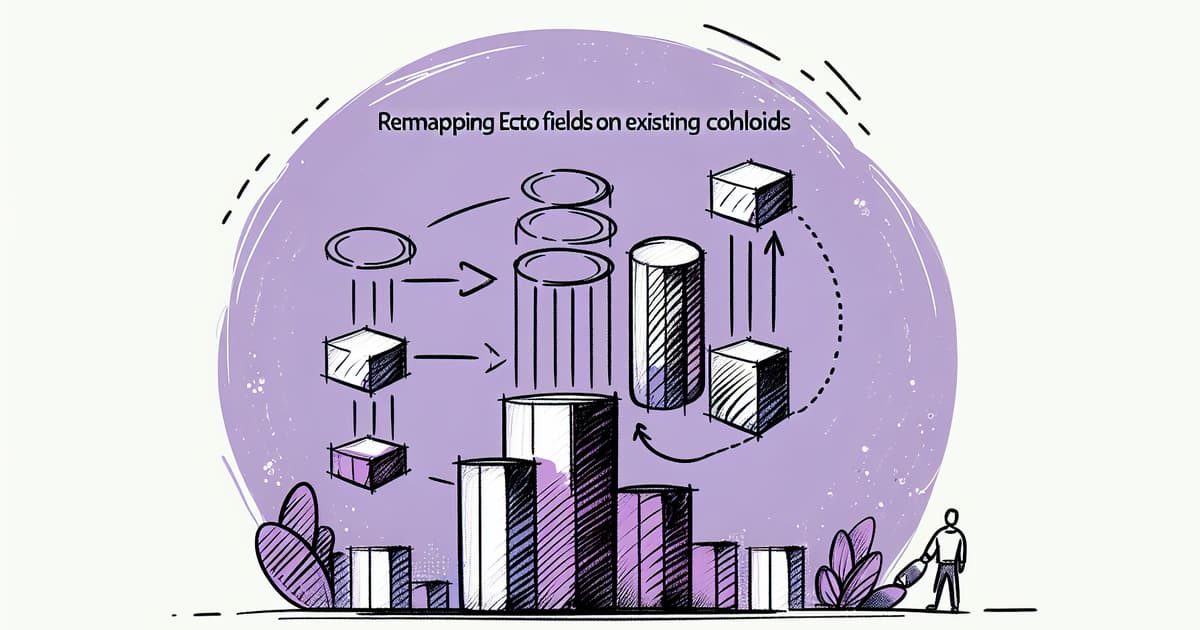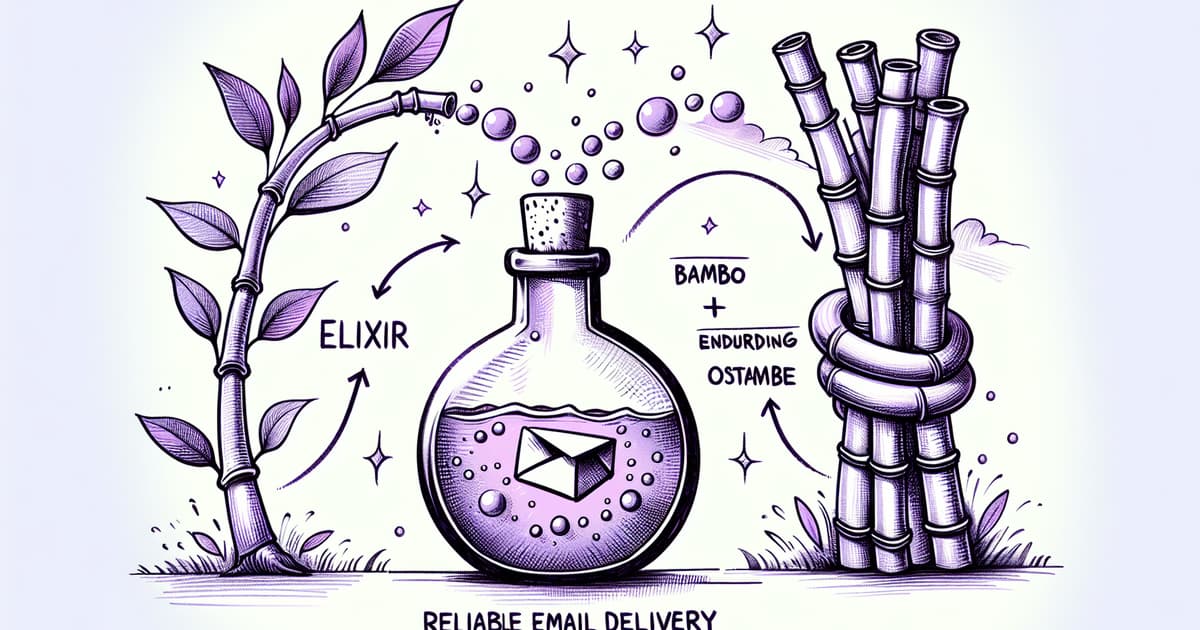We can't find the internet
Attempting to reconnect
Something went wrong!
Hang in there while we get back on track
Ecto

Elixir's dynamic and functional nature, along with the Ecto library, makes it an ideal choice for building a variety of applications requiring database interactions. Ecto provides a structured schema and query language that facilitates the seamless integration of database operations within Elixir applications. For instance, whether it's experimenting with geocoding features or handling complex database migrations in a production environment, Ecto offers the tools and flexibility needed for developers to implement robust solutions to data-related challenges. Its compatibility with databases, combined with Phoenix and LiveView, allows the creation of modern web applications that rival conventional JavaScript frameworks.
Observers of the BEAM runtime have praised Elixir's tools for monitoring and debugging, highlighting their effectiveness in maintaining application health and performance. Advanced features such as managing resource authorization or implementing multi-tenant environments also underline the capabilities of Elixir and Ecto to handle sophisticated requirements. Specifically, developers have leveraged Ecto to run large-scale, zero-downtime migrations, indicating how vital precise management and low-risk strategies are for such operations.
When it comes to testing, Elixer presents robust options. Techniques for testing external databases or simulating user authentication and authorization in multi-tenancy setups are just a few examples of how Ecto's flexibility aids developers. Adding to this, the practical deployment experiences shared for handling large data volumes with system resources such as SQLite and leveraging Elixir's efficiency, reinforce the language's standing in web and database-related tasks. Moreover, the ability to interleave Elixir's unique features like macros and telemetry for metaprogramming and observability respectively, only adds to its appeal among software developers.
Apart from the backend utility, Elixir, with libraries such as LiveView and Nerves, has also ventured into the realm of real-time applications and energy management platforms. The resilience and fault tolerance inherent in its design have been key in distributing workloads and managing infrastructure effectively. The educational progress in Elixir is noteworthy, with new resources and community insights constantly emerging to support both beginner and experienced developers alike. The discussions around Elixir at conferences and in articles provide a glimpse into the vibrant ecosystem that continues to evolve and broaden the applicability of this modern language across various domains.

Elixir Ecto Best Practices for Data Insertion
ForgettablePersona seeks advice on optimizing Ecto usage for data insertion in their project involving OpenSky Network data. Specifically, they want to replace transactional insertions with `insert_all` to handle a map of state vector data more efficiently and reduce duplication in their schema module.

Understanding Elixir Macros for Metaprogramming
George Arrowsmith's article discusses the concept of macros in Elixir, which are a critical part of metaprogramming in the language.

Using Sum Types in Elixir with `instructor_ex`
Samrat Man Singh discusses implementing sum types within the context of Elixir using the `instructor_ex` library, which allows for creating standardized responses from language models.

Implementing User Match Listings with Elixir LiveView
Lubien explains how to display a list of user matches on the frontend using Elixir's LiveView while exploring Ecto queries and stream handling.

Understanding TypeSpec Annotations for Ecto Query Functions
Author skwyckl is seeking advice on how to properly use TypeSpec to annotate functions that take and return Ecto queries in Elixir.

Understanding Instructor: Elixir's Gateway to AI Integration
Thomas Millar introduces Instructor, an open-source project to bridge Elixir with AI, focusing on machine learning applications and their integration into Elixir projects. The project addresses challenges developers face when integrating AI, such as backward incompatibility and the difficulty of parsing unstructured data. Instructor leverages Ecto schemas for structuring data expected from AI models, streamlining the process and making AI more accessible to standard software systems.

Build Real-Time Web Apps with Phoenix LiveView
This tutorial teaches how to use Phoenix LiveView in Elixir to build a real-time web application, specifically a Wordle-clone game. The course is designed for Elixir developers of all levels and provides hands-on learning through project-based instructions.

Integration of GraphQL in a Phoenix Application
Distinct_Expert_ seeks advice on integrating GraphQL into a new Phoenix application, aiming to build a social media feed with the robustness of Elixir.

Development of the Livebook Desktop Application
Wojtek Mach discusses the process of building Livebook Desktop, the challenges encountered, and the underlying open-source technology used to distribute Elixir applications on desktop platforms.

Implementing CSV Export in Elixir with NimbleCSV
Dan Schultzer discusses the challenges and solutions of exporting large CSV files using the NimbleCSV library in Elixir.

In-Depth Examination of the Phoenix Framework in Elixir
Lars Wikman delves into the intricacies of Phoenix, the de facto web framework for the Elixir programming language.

How to Configure Ecto to Show Queries in Tests
The content provides a quick tip on how to view the queries made by tests in an Elixir application using Ecto by modifying the logger configuration.

Exploring InstructorEx for Large Language Models in Elixir
Episode 185 of the Thinking Elixir Podcast delves into InstructorEx, a tool for creating structured LLM prompts to return data in JSON format using the Elixir programming language.

Advantages of Using Elixir's Phoenix and LiveView for Web Development
Tamas Kadlecsik explains why the combination of Elixir's Phoenix framework and LiveView library is becoming a preferred choice for developing modern web applications, surpassing popular JavaScript frameworks.

Elixir's Phoenix Framework and SQLite Integration Discussion
The discussion explores the viability and experiences of integrating SQLite with the Phoenix framework for a web application.

Guide to Partitioning PostgreSQL Tables Using Timestamp-based UUIDs
Chris O'Brien shares a guide on improving query performance by partitioning a large PostgreSQL table using timestamp-based UUIDs (ULIDs).

Discussing the Lack of Built-in Multi-Field Validation in Ecto Changesets
Emotional-Ad-1396 is inquiring about the apparent lack of an easy method for multi-field validation within Ecto's changeset feature and seeking advice on solutions or existing practices.

Evaluating Ash Framework for Long-term Elixir Development
Definitive_solutions shares their thoughts on considering Ash Framework for their long-term Elixir projects, detailing the pros and cons they've encountered.

Creating Github-style Database Record References Using LiveView in Elixir
Jason Kaniekete explains how he enhanced his Tekken Teacher application by implementing Github-like reference functionality using a custom LiveView hook to better manage complex game data linking within text fields.

Automating Migration Creation from Ecto Schema Updates
Ivuka_shad inquires about the possibility of generating database migrations automatically from changes to an Ecto schema within the Elixir framework.

How to Alias Field Names in Ecto for Better Domain Modeling
The article discusses how Ecto can be used to alias column names in an existing database to more appropriate field names within an Elixir application's schemas.

Looking for Advanced Elixir Learning Resources
thebrilliot is in search of educational resources to gain a deeper understanding of Elixir's VM, standard tools like Registry, and the BEAM environment.

Leveraging Ecto for Dynamic Data Handling in Elixir
Benjamin Milde delivers a presentation on employing Ecto without schemas, drawing inspiration from ProcessWire CMS to handle dynamic data querying and storage layout in Elixir.

New Project Qry: Simplifying Domain Queries
Developer a__u__s__t__i__n introduced Qry, a project that enhances querying domains with syntax that outputs results as nested maps, emulating functionalities from GraphQL and Ecto's preload.

Implementing Polymorphic Embeds using Ecto in Elixir
Dan Schultzer shares how to validate and map semi-arbitrary data for embedded schemas in Phoenix forms using polymorphic embeds without database storage.

Implementing Repeatable Read Isolation in Ecto
Chris Keathley shares insights on setting the isolation level in Ecto transactions to handle race conditions.

Timezone Conversion Strategies with Ecto in Elixir
A developer is seeking advice on handling timezone conversion for an examination system using Ecto in Elixir. The system has `start_date` and `end_date` fields, and there's a hesitation about the best practice for converting to UTC and back to local time for storage and retrieval.

Case Study on Approximated.app - A Web App Domain Automation Tool Built with Elixir
Carter shares the experience of building and running Approximated.app with Elixir, managing over 200k custom domains and its performance in production.

Overview of Drops Library for Elixir Data Validation
Peter Solnica introduced the new Elixir library called Drops for data validation, emphasizing its benefits and core features such as type-safe schemas and casting, detailed error messages, and validation rules.

Elixir's Practicality and Potential Beyond Web Development
Jason Stiebs touched on the practicality and power of Elixir, especially for web development and beyond. He recognized Elixir's leverage as an efficient, production-ready language with a solid ecosystem including Phoenix and observed a relative stability in his tech stack over years. He advocated for exploring Elixir's capabilities outside the traditional web domain, citing examples from machine learning to 3D modeling.

Implementing Advanced Multi-Tenant Features in Elixir with Ecto
Aestimo Kirina dives into building advanced multi-tenant features in an Elixir application, utilizing the Ecto library for efficient data handling and structuring.

GridPoint's Use of Elixir and Nerves for Energy Management
Alex McLain talks about how GridPoint is leveraging Elixir and Nerves to build an advanced energy management platform. The presentation covers GridPoint's business operations, the balance between energy savings and customer comfort, and the various pieces of technology used to optimize energy management, including an overview of the Nerves platform.

Optimizing Map Performance with Elixir and Leaflet.js
Aziz Abdullaev discusses a practical approach to optimizing the performance of a map in a web application using Elixir, Phoenix LiveView, and Leaflet.js. The author details the issues encountered when attempting to render over 12,000 map markers and how they solved these challenges.

Summary of Thinking Elixir Podcast News Episode
Mark Ericksen, David Bernheisel, and Cade Ward discuss recent updates in the Elixir community, including new Elixir features, community news, and development tools.

Discussing Elixir's Educational Path with Saša Jurić
Saša Jurić, the author of 'Elixir in Action', speaks about the progression and challenges in training and education for Elixir developers.

Discussions on Phoenix and Its Future Developments
Phoenix core team members Chris McCord and Jason Stiebs discuss key updates and future prospects of the Phoenix and LiveView with Elixir Wizards hosts Sundi Myint and Owen Bickford.

In-depth Look at Full-Text and Name Search in Postgres
Peter Ullrich, Senior Elixir Engineer at Remote, joins hosts Allen Wyma and Sascha Wolf on the Elixir Mix podcast to discuss his blog articles on full-text and name search features in Postgres, explaining replacement of Elasticsearch, and the benefits of using these features for Elixir developers.

How to Tailor Phoenix Generators for Specific Project Needs
Mark Ericksen discusses the lesser-known feature of customizing Phoenix generators to suit specific project patterns and styles, making the process of adding new components to an application smoother and less error-prone.

Summarizing ElixirConf 2023 Lightning Talks
Various speakers present diverse topics related to Elixir at ElixirConf 2023 Lightning Talks.

Setting Up RDS IAM Authentication in Elixir with Ecto
Dan Schultzer explains how to use AWS RDS IAM database authentication with Ecto, providing a secure method for database connections by utilizing short-lived tokens instead of static passwords.

Implementing Efficient Email Delivery in Elixir with Bamboo and Oban
Maheep Kumar presents a guide on setting up reliable e-mail delivery in Elixir applications by leveraging Bamboo and Oban.

Understanding unique_index Use in Elixir for Business Logic
Herminio Torres explains how to efficiently use unique_index in Ecto schemas to enforce business logic constraints for ticket purchases in Elixir applications.

Creating a Multi-tenant Application with Phoenix and Elixir
Aestimo Kirina on Nov 21, 2023, discusses the steps to create a multi-tenant Elixir/Phoenix application with user authentication and link shortening functionality.

Enhancing User Experience with LiveView Forms
Andrew Ek discusses how Elixir and Phoenix LiveView can be used to improve the experience of working with forms, emphasizing the importance of user experience and providing practical tips for form design and validation.

Integrating Elixir with Datadog for Monitoring and Tracing
Ludwik Bukowski explains how to monitor and instrument an Elixir application using Datadog, detailing its integration and showcasing a sample Elixir Phoenix application with telemetry.

Understanding Observability with Elixir Telemetry
Ethan Gunderson presents an overview of using telemetry for observability in Elixir applications, particularly on how it can be employed to better understand and manage production systems.

Elixir's process management and the $callers and $ancestors features
Isaac Yonemoto discusses Elixir's secret features $callers and $ancestors and their role in process management.

Switching from Cassandra to SQLite in Elixir for High Volume Data Processing
Jace Warren, a Principal Software Engineer at Savi Solutions, details the transition from using Cassandra to SQLite for managing video surveillance data. This change in database technology was necessary due to performance degradation and increasing costs with their Cassandra cluster as the company handles over a billion records per day. By leveraging Elixir, SQLite, and the Beam, they distributed storage workloads across application servers, significantly reducing overhead and costs.

Elixir Podcast Discussing Database Migrations and AI in Elixir
Mark Ericksen and co-hosts discuss improvements in Safe Ecto migrations and explore the integration of AI within the Elixir ecosystem.

Implementation Challenges of an Interview Scheduler Using Phoenix LiveView
Karoline Lende shares her experiences as a new Elixir developer in creating an interview availability scheduler with Phoenix LiveView. She discusses the initial roadblocks, the iterative problem-solving process with her team, and the successful deployment of the feature.
© HashMerge 2026